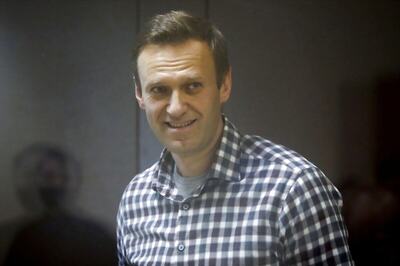
views
London: A charismatic politician with a sense of humour who is respected even by her rivals, Scottish Conservative leader Ruth Davidson was everything Prime Minister Theresa May was not on the campaign trail.
After winning 13 seats in Scotland -- 12 more than the previous tally -- and denting nationalist First Minister Nicola Sturgeon's plans for independence, she is now an influential voice following Britain's general election.
That is in contrast with May, who is scrambling to stay on by attempting to forge a deal with Northern Ireland's ultra-conservative Democratic Unionist Party to get the support of its 10 MPs after losing her majority.
The success of the Scottish Conservatives helped save May from total disaster and could now give 38-year-old Davidson a more prominent role in British politics.
One example is Davidson's more moderate rhetoric on Brexit in largely pro-EU Scotland, which is at odds with May's stance until now and could herald a change of tack by the government.
"I've always spoken about how I want an open, rather than a closed Brexit, and that puts freedoms at the heart of what it is that we achieve here," she said on Saturday as she showed off her 13 newly-minted MPs.
"That's freedom to trade and our economic growth that I think has huge primacy," she said -- a different approach than that of May, who has said she wants Britain to leave the European single market and customs union.
"We can look again at what we want to achieve as we leave the European Union, and I want to be involved in those discussions," Davidson said.
'Assurance' on gay rights'
The ultra-conservative DUP is opposed to gay marriage, and Davidson's support for gay rights also promises an awkward relationship with the party May must now rely on to be able to govern.
Davidson said May had given her "a categoric assurance that in talking to the DUP that there would be no suggestion of any rollback on LGBTI rights in the rest of the UK".
She said she was also assured "that we would seek to use any influence we had to advance LGBTI rights in Northern Ireland".
Davidson is engaged to her Irish partner Jen Wilson and is an outspoken advocate for gay marriage.
Last summer she gave the annual pride lecture for Amnesty International in Northern Ireland.
"I was probably the only unionist protestant who was marrying an Irish Catholic that they could find to advocate gay marriage," she said earlier.
"I would dearly love to see equal marriage in Northern Ireland. The arguments that are being used against it now are exactly the same arguments that were used in Scotland and Ireland, but the sky hasn't fallen in."
'Hard road back'
Scottish Conservatives previously had just one MP in Scotland, prompting the joke from the still dominant but now badly bruised Scottish National Party that there were more pandas at Edinburgh zoo -- two.
The ebullient Davidson has turned a party once consigned to the scrapheap into a fighting force with her jovial media persona and forceful opposition to Sturgeon's hopes for independence.
Following Thursday's vote, Sturgeon admitted that the independence issue had been a factor in her party's losses and that she would "listen to voters".
Davidson on Friday declared independence hopes "dead".
Scotland rejected independence by 55 percent in a 2014 referendum but the SNP went from strength to strength the following year.
It won all but three of the 59 Scottish seats in the British parliament and swiftly laid plans for a second independence referendum.
In this week's election, the party won just 35 seats.
Davidson can take much of the credit for that.
Never shy of performing entertaining stunts or appearing on comedy programmes, she shone as one of the most charismatic figures in an otherwise dour campaign.
Davidson was elected the party's Scotland leader in 2011.
She cemented her position in 2016 by leading the Conservatives to second place in the Scottish Parliament election, winning a quarter of the 129 seats in the Edinburgh-based legislature.
Davidson cast her first vote as a teenager in 1997 -- the year Tony Blair's New Labour ended 18 years of Conservative British rule.
"I watched every single Conservative seat in Scotland fall, so I've waited a really long time for a comeback," she told AFP before the election.
"If this proves to be that time then it will have been a really hard road back."




















Comments
0 comment